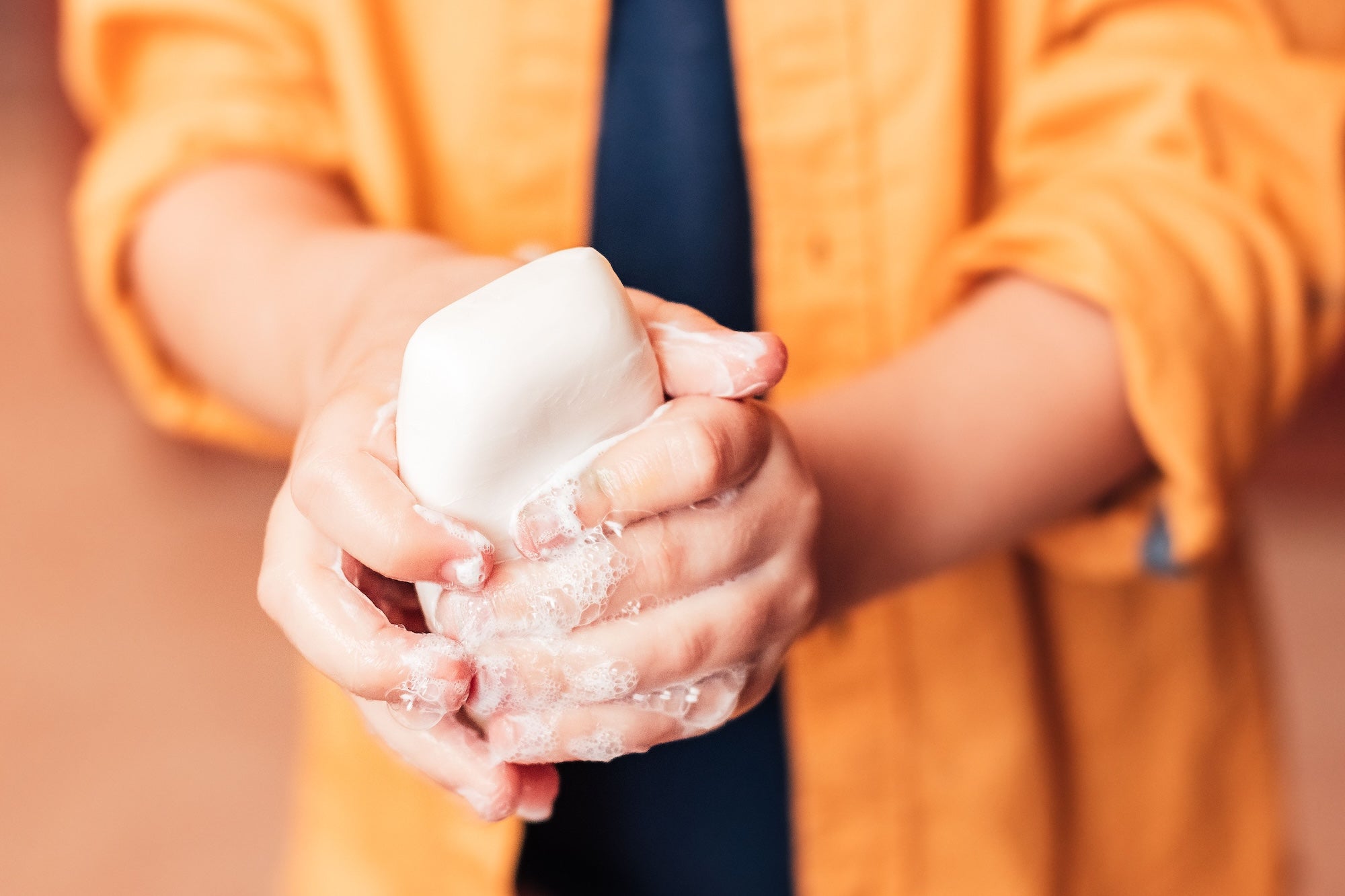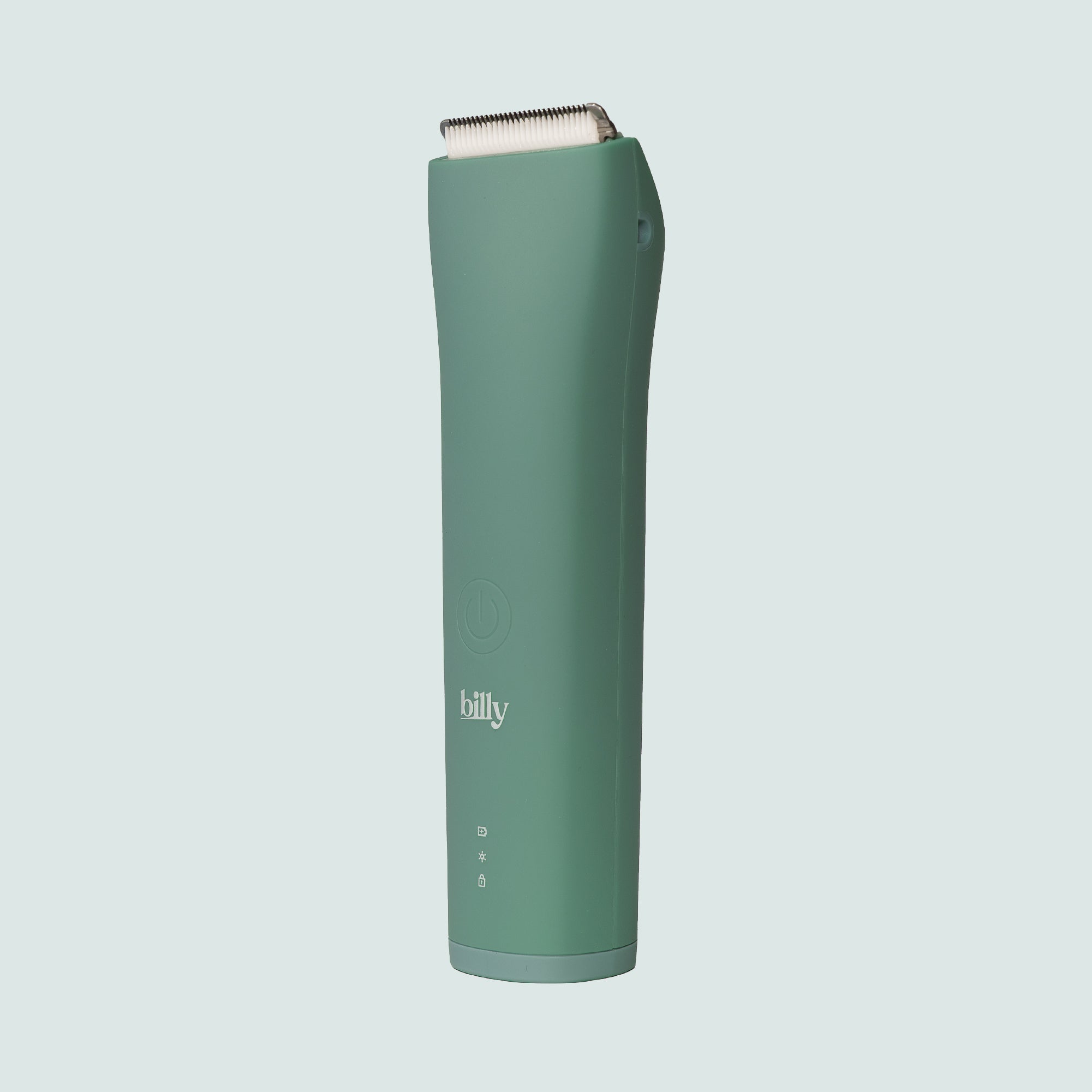How to choose your intimate soap: the complete guide for men and women [2025]
Let's be honest, choosing your intimate cleansing gel is a bit like navigating a maze. Between the "specially formulated" products, the balanced pH levels, and the marketing promises, it's hard to know what's right for you.
Let's talk frankly about this topic that concerns you but is still under-discussed. Because in 2025, taking care of your private parts should be as natural as brushing your teeth.
Why use a specific intimate soap?
Let's face it, many of us grew up thinking that a regular bar of soap would do the trick. Wrong! Your intimate areas have specific needs and deserve special attention.
Your intimate area has a naturally acidic pH (between 3.8 and 4.5 for women, slightly more basic for men). Conventional soap, often too alkaline, can disrupt this natural protection.
The result? Irritation, itching, and that uncomfortable feeling you'd rather avoid. Especially when you've got a fun night planned...
The essential criteria for choosing well
pH, your best ally
The pH of your intimate gel should respect the natural acidity of your genitals. For women, aim for a pH between 4 and 5.5. For men, it's slightly higher, around 5 to 6.
The ingredients to favor
Look for gentle formulas with non-ionic cleansing agents. Lactic acid is your friend—it maintains natural balance. Chamomile or aloe vera extracts add a plus to soothe sensitive skin.
What to avoid
Avoid soaps with harsh sulfates, synthetic fragrances, or dyes. These ingredients can turn your hygiene routine into an obstacle course.
Women's Special Guide: Navigating the Product Jungle
Understanding your specific needs
Ladies, your intimate area is a delicate ecosystem. Your vaginal microbiome contains lactobacilli that maintain protective acidity. The wrong product can upset this entire balance.
Recommended formulas
Choose gynecologically tested intimate gels with a pH between 4 and 5.5. Formulas enriched with prebiotics support your natural flora.
Lactic acid and cranberry extracts are particularly interesting for maintaining acid balance.
Frequency of use
Once or twice a day at most. Any more is counterproductive and risks disrupting your natural ecosystem.
What to do during your period?
During this time, your pH may fluctuate slightly. Maintain your usual routine without increasing your cleansing frequency.
Special Men's Guide: Men's Intimate Hygiene Demystified
Why it's important too
Gentlemen, male intimate hygiene isn't just about pleasing your partner. It's also a matter of personal comfort and health.
Your male genital area easily accumulates sweat, bacteria, and residue. Not to mention the buildup under the foreskin, which can create unpleasant odors.
Your masculine specificities
Your genital skin is more resilient than women's, but remains sensitive. Its natural pH is slightly less acidic, around 5 to 6.
Practical advice for gentlemen
Choose a gel with a pH level that's suitable for men (5 to 6). Refreshing formulas with mint or eucalyptus can give you a pleasant feeling of freshness.
Don't forget to gently clean under the foreskin if you're uncircumcised. This is essential to prevent smegma buildup.
After servicing your billy mower
After trimming your intimate hair with your trimmer, use your cleansing gel to remove residue and soothe your skin. It's the perfect combo for a complete maintenance routine.
Common mistakes to avoid
Overzealous cleaning
More isn't necessarily better. Overcleaning can disrupt the natural balance and create more problems than it solves.
Use the same product everywhere
Your favorite shower gel isn't suitable for your intimate areas. Each area of your body has its own specific needs.
Ignore your skin's reactions
If you experience irritation, itching, or burning, change your product. Your skin is talking to you, listen to it.
How to test a new product?
Start by testing the product on a small, less sensitive area. If everything is fine after 24 hours, you can gradually adopt it.
Introduce the new gel slowly, alternating with your old product for the first few days.
Natural alternatives
Marseille soap, really?
Contrary to popular belief, real Marseille soap is suitable for occasional use. However, its pH remains too high for daily use.
Homemade recipes
Frankly, it's better to invest in a good, tested commercial product. Your private parts aren't the ideal testing ground for your amateur chemistry skills.
Intimate hair care: the winning duo with your cleansing gel
Let's face it: having the right intimate gel is great, but if your body hair looks like a rainforest, even the best product in the world will have a hard time doing its job properly.
Let's not kid ourselves, well-groomed body hair makes your hygiene routine a lot easier. When your hair is the right length, your intimate gel can really reach your skin, do its cleaning job, and leave you with that fresh feeling you're looking for. No more contortionists to make sure you've cleaned everything.
That's where a trimmer specially designed for your sensitive areas becomes your best friend. Unlike razors that can turn you into an irritated lobster, a good trimmer allows you to keep your hair at the length you're happy with—whether it's neat, stylish, or just freshened up.
The added bonus? Well-groomed bristles retain less moisture and odor. The result: your cleansing gel is more effective, you feel fresher longer, and you avoid that unpleasant feeling of dampness sticking to your skin.
The ideal routine? A quick trim with the clippers as you wish, then your usual cleansing with your favorite gel. And since the Billy is waterproof, you can do it all at once in the shower: shave, cleanse, dry, and voila, you're done. Simple, effective, and you feel good about yourself!
When should you consult a professional?
If you experience persistent irritation despite using a good product, consult a doctor. Sometimes the problem lies elsewhere (infection, allergy, hormonal imbalance).
A dermatologist or gynecologist will be able to guide you towards the appropriate solution.
The final word
Choosing your intimate soap is like choosing your underwear: it's personal, it must be comfortable, and it influences your daily well-being.
In 2025, taking care of your intimate areas with the right products should be a reflex, not a headache. Whether you prefer your hair maintained with your billy or natural, the important thing is that you feel good about yourself.
Because ultimately, when you feel clean and comfortable in your body, everything becomes easier. And that really makes a difference.
Find out how to complete your intimate hygiene routine with our complete guide to shaving your testicles or our guide to intimate trimmers for women .
FAQ: Everything you need to know about intimate soaps and gels
Should you wash your private parts every day?
Yes, daily cleansing of your intimate areas is recommended. Once a day is more than enough to maintain good hygiene without disrupting the natural balance. Avoid cleansing more than twice a day, even after an intense workout.
Can the same soap be used for genital areas and the rest of the body?
No, your genital areas require a specific product. The pH of your intimate areas differs from the rest of your body and requires a specific cleansing gel to avoid irritation and imbalances in your natural flora.
What is the difference between an intimate soap for men and for women?
Intimate soaps for women generally have a more acidic pH (4-5.5) to respect vaginal acidity. Men's products have a slightly higher pH (5-6) adapted to male physiology. Formulations may also differ in terms of soothing active ingredients.
How to clean your sensitive areas after grooming your hair?
After using your intimate trimmer, gently clean your sensitive areas with a special gel. This removes any remaining trimmed hair and soothes your skin. Avoid alcohol-based products, which can cause irritation.
Should you clean your intimate areas before and after sex?
Pre-cleansing isn't necessary if you practice proper daily hygiene. After intercourse, rinsing with clean water is sufficient. Avoid douching, which disrupts your natural flora.
Can you use regular soap on your genitals?
Occasionally, yes, but it's not ideal. Conventional soaps have a pH that's too high (8-10), which can disrupt the natural acid balance of your genitals. Always choose a suitable product.
How to wash sensitive areas during your period?
Maintain your usual routine with your intimate gel. Cleanse from front to back, change your protection regularly, and avoid scented products that can increase the risk of irritation.
Should you wash the inside of your private parts?
No, never wash the inside of your vagina. It naturally self-cleans itself thanks to its secretions. Simply clean the vulva (external parts) with a suitable product.
What should I do if my intimate gel causes irritation?
Stop use immediately and return to cleansing with plain water for a few days. If irritation persists, consult a healthcare professional. Always test a new product gradually.
How often should I change my intimate cleansing gel?
If your product works for you, there's no need to change it. Avoid constantly changing it, as this can disrupt the balance of your sensitive areas. Only change it if irritation occurs or if your needs change.
Can you use intimate wipes daily?
Intimate wipes are useful in a pinch but are not a substitute for proper cleansing. For daily use, use an intimate gel and water instead. Wipes may contain irritating preservatives.
How to clean your scrotum and testicles properly?
Use a male-specific intimate gel with warm water. Gently cleanse by lifting your testicles to reach all areas. Dry thoroughly to avoid moisture that can breed bacteria.
Should you clean under the foreskin daily?
Yes, for uncircumcised men, it is essential to clean daily under the foreskin with a gentle gel. Gently retracts the foreskin and cleans to prevent smegma buildup and odor.
How to properly clean your glans?
Gently clean your glans with warm water and a gentle intimate gel. Slightly retract the foreskin to access the entire surface. Avoid vigorous rubbing on this particularly sensitive area. Rinse thoroughly and pat dry.
Are intimate gels really necessary or is it marketing?
It's not just marketing hype. Your genital area has a specific pH (4-6) that's very different from the rest of your body. A suitable gel respects this delicate balance, unlike conventional soaps, which can cause irritation and imbalances.
How to care for your pubic area after shaving?
After shaving your pubic area, cleanse with a gentle intimate gel to remove residue. Dry gently and apply a soothing, fragrance-free cream if desired. Avoid alcohol-based products.
Can you wash your genitals with Marseille soap?
Real Marseille soap can help occasionally, but its pH remains too high for daily use on your genitals. It risks disrupting the natural balance in the long run.
Should you use hot or cold water to wash your intimate areas?
Use lukewarm water, not too hot or cold. Very hot water can irritate your sensitive mucous membranes, and cold water is uncomfortable. Body temperature is ideal for cleaning your intimate areas.
Should you put soap inside the vagina?
Absolutely not! Never put soap, gel, or cleansing products inside your vagina. It cleans itself perfectly thanks to its natural secretions. Introducing soap could disrupt your vaginal flora and cause infections or irritation. Limit yourself to cleaning the outside of the vulva.
How to properly clean the vulva without causing harm?
Cleanse your vulva from front to back with a suitable intimate gel. Focus on the folds of the labia majora and minora where secretions and residue can accumulate. Use clean hands rather than a glove, which can be abrasive. Rinse thoroughly with warm water.
Are probiotics in intimate gels useful?
Probiotics and prebiotics in intimate gels can help maintain your flora balance, especially after antibiotic treatments. They are not essential but may be beneficial for some people.
How to effectively clean your perineum?
Your perineum requires special attention. Always clean from front to back with a gentle intimate gel to prevent the spread of bacteria. This area easily accumulates perspiration and bacteria.
Can you share your intimate gel with your partner?
Technically yes, but ideally, everyone should have their own product tailored to their physiology. Men and women have different pH needs. A universal gel can be a good solution.
Should I change products during pregnancy?
Not necessarily, but pregnancy hormones can alter your sensitivity. If your usual product becomes irritating, opt for an even gentler, fragrance-free, and gynecologically tested formula.






















Share on your networks: